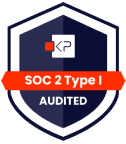The spirit of financial literacy and its advocates can come from anyone, anywhere. And in 2022, we need as many proponents as we can get. Whether they’re champions of financial health like QCash or an individual’s personal story of economic perseverance and achievement in small town America, the power of financial literacy and education needs to be turned up to 11, especially when broadcast to our nation’s youth and young adults.
Fortunately, that’s where Ndamukong Suh comes in. Unfamiliar? An NCAA college football All-American, Ndamukong is one of this era’s greatest players in the National Football League, a Super Bowl champion, a near-lock for the NFL Hall of Fame . . . and also a huge advocate for financial literacy and education for youth in America. (May we also mention his name recognition and popularity among these millions of impressionable young sports fans?)
Investing as well in over 30 companies, Suh educated himself in the ways of financial literacy and, according to one CNBC article highlighting his activism, the three-time-1st Team All-Pro is a rock-solid believer that financial literacy remains the foundation for financial success and opines it should be taught prominently in the U.S. school system.
“Financial literacy definitely needs to be in the school system. I wish I had it when I was growing up,” says Suh. “It’s important for our youth to learn that at an early age because it becomes very prevalent in their life . . . whether it’s renting a car, buying a car, looking for your first home or looking for your first apartment and understanding your credit as part of those different decisions. If you don’t have that basic foundation and that knowledge, you’re not going to be able to succeed in life.”
According to CNBC finance contributor Josh Brown, a huge advantage for today’s schoolkids is gaining the knowledge that being financially literate means freedom, and everything that entails. “The freedom to choose how we want to live our lives, what we want to spend our money on, how we want to prioritize enjoying today, versus being prepared for tomorrow. The more you understand how [financial institutions] work, how credit works, how long-term investing works, the difference between trading and investing money in general, the more freedom you’ll end up with. That’s why it’s so important that people take this seriously.”
As president and CEO of Junior Achievement USA, Jack Kosakowski is on a parallel mission to to increase financial literacy and education among today’s youth. As leader of the organization, Kosakowski endeavors to help young people across the country gain the knowledge they need to successfully manage their finances.
“At Junior Achievement, we believe that all schools should be teaching young people about money and savings at very early ages, and it builds up,” Kosakowski explains. “Like most other subjects students take in school, you don’t all of a sudden advance to a master class without the underpinnings of knowledge. We feel strongly that young people need to be exposed at a very early age about managing money and all the things that go into budgeting and finance.”

Where Millennials and Gen Z feel they stand with financial literacy
Like author and news contributor Helen Zhau, many Millennials claim to feel let down following graduation. As the years went on from college into “real” life, like generations before them, they suddenly found themselves slipping into student debt while simultaneously realizing that a college degree never guaranteed the American Dream. Millennials may claim to be the most educated generation, but statistically they remain financially worse off than their parents.
Looking back, Helen saw through her rear-view mirror what was necessary in her earlier education. “I got a 4.5 GPA in high school and graduated from UCLA, my dream college, in 2011. I accomplished exactly what society told me I needed to do to set myself up for success. Then I graduated and spent 12 of the next 24 months unemployed. I was living at home with my parents, on food stamps, and depressed. That experience made me realize what I wish I learned in school: How to make and manage money.”
Yanely Espinal, director of educational outreach at Next Gen Personal Finance, saw her post-education experience following graduation from Brown University in 2011. Yanely was living paycheck-to-paycheck just like her parents who immigrated to the U.S., except her parents never made it out of K-12. “I feel like a lot of people do feel that the education system did fail them, especially for Millennials,” she says.
Case in point: According to FINRA’s 2018 National Financial Capability Study, on average, 18-34 year-olds can correctly answer only about 2.5 out of six key financial literacy questions. Just 17 percent of individuals in that age group could answer four or more questions correctly, down from 30 percent who could in 2009.
Instances like the above continue to support the claim by experts that thriving and succeeding in today’s financial and economic world takes more than simply a college degree. While the Baby Boomers often found a job following either high school or college graduation, living in contemporary America is increasingly more like sink-or-swim out of college, as seen as the widening gap between the rich and the poor. Cost of living and essentials have grown increasingly expensive while wage growth has stayed maddeningly stagnant since at least 2007.
With the advent of, and consistent access to, a broader suite of market investments, many industry experts believe today’s consumer must be savvier than prior generations at making money aside from a career and their 401ks while knowing how to mitigate risks in those investments. “There are all these new choices we have to make, which by and large, our parents and grandparents never had to think about,” says Olivia Mitchell, professor of economics and public policy at the University of Pennsylvania’s Wharton School.
As with past generations, not everyone grew up in a financially-savvy home, or households that stressed financial literacy or education. And it shows. That’s why experts and advocates like Kosakowski and Ndamukong Suh are so bullish for the cause. Many of the students who need it most aren’t learning it in their schools. On top of that, only 15 percent of parents speak with their children about their household finances more than once a week, according to a recent CNBC + Acorns Invest in You survey. Only one-fourth of parents speak with their kids about money less than once a month, and one-third of parents never do.
According to the Borgen Project, a nonprofit organization that addresses poverty and hunger while working towards ending them, intergenerational poverty is the relentless cycle in which poverty is passed down from one generation to the next. Edwin Gomez, superintendent of schools for Riverside County in Southern California, apparently agrees with that assessment. “Poverty is passed on from generation to generation unless that curse is broken by teaching money and prosperity. You can be financially free. There are many ways of making money that isn’t just a job.”
It appears now, however, that high schools are finally making moves to better prepare existing and future generations for the realities of building a stable foundation for financial literacy, education, and wellness for a lifetime. In the last three years, the number of states that require or will require students to take a semester of personal finance to graduate has more than doubled, from 5 to 11. The state of Utah was the first state to require semester-long personal finance courses, beginning in 2008. In March 2022, Florida became the latest state to require students to complete a personal finance course to graduate.
In the 2020-21 school year, seven out of 10 public high school students had access to a full semester of personal finance as an elective or graduation requirement, according to Next Gen Personal Finance. That’s an increase from two out of three the year before.
Why inexperienced consumers should employ digital banking tools
Firstly, the heart of the credit union movement is its power to take the time to individually connect with and expand members’ financial health journeys while introducing them to future growth products. In addition to establishing that trusting foundation, a credit union’s suite of digital financial services are particularly engaging to younger generations like Millennials and Gen Z – even those who are starting or in the middle of their journey in financial literacy and education.
Despite their lack of practical, everyday banking experience, younger consumers are learning to count on digital banking and fintech tools and services to help manage their daily financial lives. They have at-once high expectations for fintech and virtually zero tolerance for friction in their digital assets. Now imagine those Gen Z consumers with the solid, underlying foundation of practical financial literacy and education forged in the K-12 public learning environments. That is a generation to count on; who can, in turn, educate the generation following them the value of establishing a culture of financial literacy and health, both in the classroom and the household.
QCash considers life event loans the first step in reestablishing one’s financial health and the ensuing goals of consistent financial stability and wealth-building. Part of a consumer’s journey – especially the younger folks in your communities – is first locating an established financial institution that makes it their mission to make their members’ financial health their FIRST priority. That’s the credit union mission: “people helping people.” It’s not merely a slogan; it’s the very operating principle for which the industry was founded.
We want your credit union to be able to live up to every need an incoming member may require to get back on their path to financial literacy and health. That includes guiding their feet back to solid ground with affordable and responsible small dollar, life event loans. Our software-as-a-service platform employs a programming interface that integrates with your core processor, online banking, and mobile platforms. That means an easy implementation process for your credit union and a seamless (and fast!) experience for your members that takes just 60 seconds to apply, confirm, and if approved, deposit, in their accounts.
If you are interested in more information on QCash life event loans, feel free to go to our website and request a demo!






